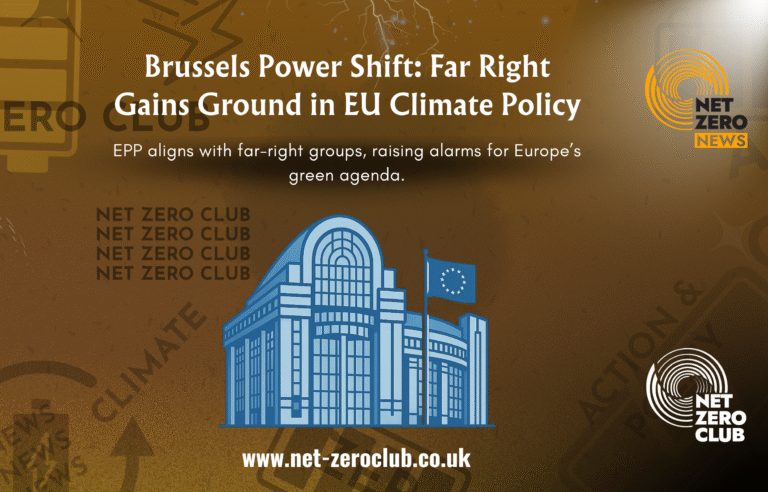Climate Summit Proposal Sidesteps Urgent Fossil Fuel Transition

Welcome, Net Zero News readers,
In a world where climate change poses a growing threat, the latest round of international negotiations has sparked intense discussions and debates among officials, activists, and the public alike. The recent climate summit proposal has drawn both attention and criticism for its approach to fossil fuels, leaving many advocates for a swift transition to renewable energy feeling disheartened. This article dives deep into the nuances of the proposal and analyses its implications for our global climate goals.
The backdrop for this debate is the ongoing urgency surrounding climate action. With extreme weather events becoming increasingly frequent and severe, the call for immediate action is louder than ever. The Intergovernmental Panel on Climate Change (IPCC) has made it abundantly clear: to limit global warming to 1.5°C above pre-industrial levels, we must significantly reduce greenhouse gas emissions, particularly from fossil fuels.
However, as representatives from various countries gather to negotiate at the latest climate summit, the proposal on the table has notably sidestepped a definitive commitment to accelerate the transition away from fossil fuels. Instead, it outlines a more tempered approach that some critics argue lacks the urgency required to combat the climate crisis effectively.
This nuanced position has been met with disappointment by many environmental advocates, who argue that the science is clear: to avert the worst impacts of climate change, we cannot afford to delay the phasing out of fossil fuels. The summit’s proposal, while recognising the importance of renewable energy, appears to accept a slower transition that may be driven by economic considerations rather than environmental necessity.
Many grassroots organisations have taken to social media and public forums to voice their concerns. Activists argue that this proposal does not align with the ambitions set forth in the Paris Agreement, which aims to limit global temperature rise and foster a sustainable future. They emphasise that the longer we delay in moving away from fossil fuels, the more catastrophic the consequences will be for our planet and future generations.
In response to the criticisms, several government representatives have defended the proposal, asserting that a balanced approach is necessary to ensure that all nations, especially those reliant on fossil fuel economies, can transition without destabilising their economic structures. They argue that an immediate and abrupt departure from fossil fuels could lead to job losses and economic upheaval, particularly in regions where fossil fuel extraction and utilisation form the backbone of local economies.
While economic considerations are undoubtedly important, many experts believe that the long-term costs of inaction far outweigh the short-term benefits of maintaining the status quo. The rising frequency of natural disasters, health impacts from air pollution, and the economic costs associated with climate adaptation all point to a pressing need for a robust and urgent response to climate change.
Moreover, the technological advancements in renewable energy have made it increasingly viable for countries to shift away from fossil fuels without risking their economic stability. Countries like Denmark and Germany have demonstrated that an ambitious move towards wind and solar energy can not only reduce emissions but also create jobs and stimulate economic growth. The successful integration of renewable energy into their economies serves as a powerful counter-argument to the notion that fossil fuel dependence is a necessity.
The dialogue surrounding the transition to renewable energy is further complicated by geopolitical factors. As nations grapple with energy security in the wake of global conflicts and supply chain disruptions, the reliance on fossil fuels can be seen as a safeguard against volatility. However, this perspective ultimately undercuts the broader goal of achieving a sustainable and resilient energy future. A shift towards renewables not only mitigates climate risks but also enhances energy independence and security in the long run.
In light of these complexities, it is crucial for climate negotiators to recognise the urgency of the situation and prioritise a clear and actionable plan to phase out fossil fuels. As the world faces unprecedented challenges, the stakes have never been higher. The time for half-measures is over; we must act decisively to protect our planet.
The voices of the youth are particularly prominent in this discourse. Young activists have taken to the streets, demanding bold action and accountability from their leaders. They remind us that the decisions made today will shape the world they inherit tomorrow. This generational aspect of the climate crisis adds an emotional weight to the discussions, highlighting the ethical dimensions of our environmental responsibilities.
As we move forward in these negotiations, it is essential for all stakeholders to come together with a shared vision for a sustainable future. The climate summit provides an opportunity for collaboration and innovation, enabling nations to work together towards ambitious targets that prioritise both environmental and economic resilience.
In conclusion, while the current climate summit proposal may have sidestepped the urgent call to accelerate the move from fossil fuels, it is imperative that we remain vigilant and continue to advocate for a swift transition to renewable energy. The time for action is now, and we must hold our leaders accountable to ensure that they rise to the challenge of safeguarding our planet for future generations. Together, as a united community of champions for net zero, we can drive the change necessary to create a sustainable and equitable future.
Thank you for being a part of this crucial conversation. Let us continue to push for ambitious climate action and inspire others to join us in our quest for a net zero world.

 Got net-zero news, project updates, or product launches to share?
Got net-zero news, project updates, or product launches to share? 

